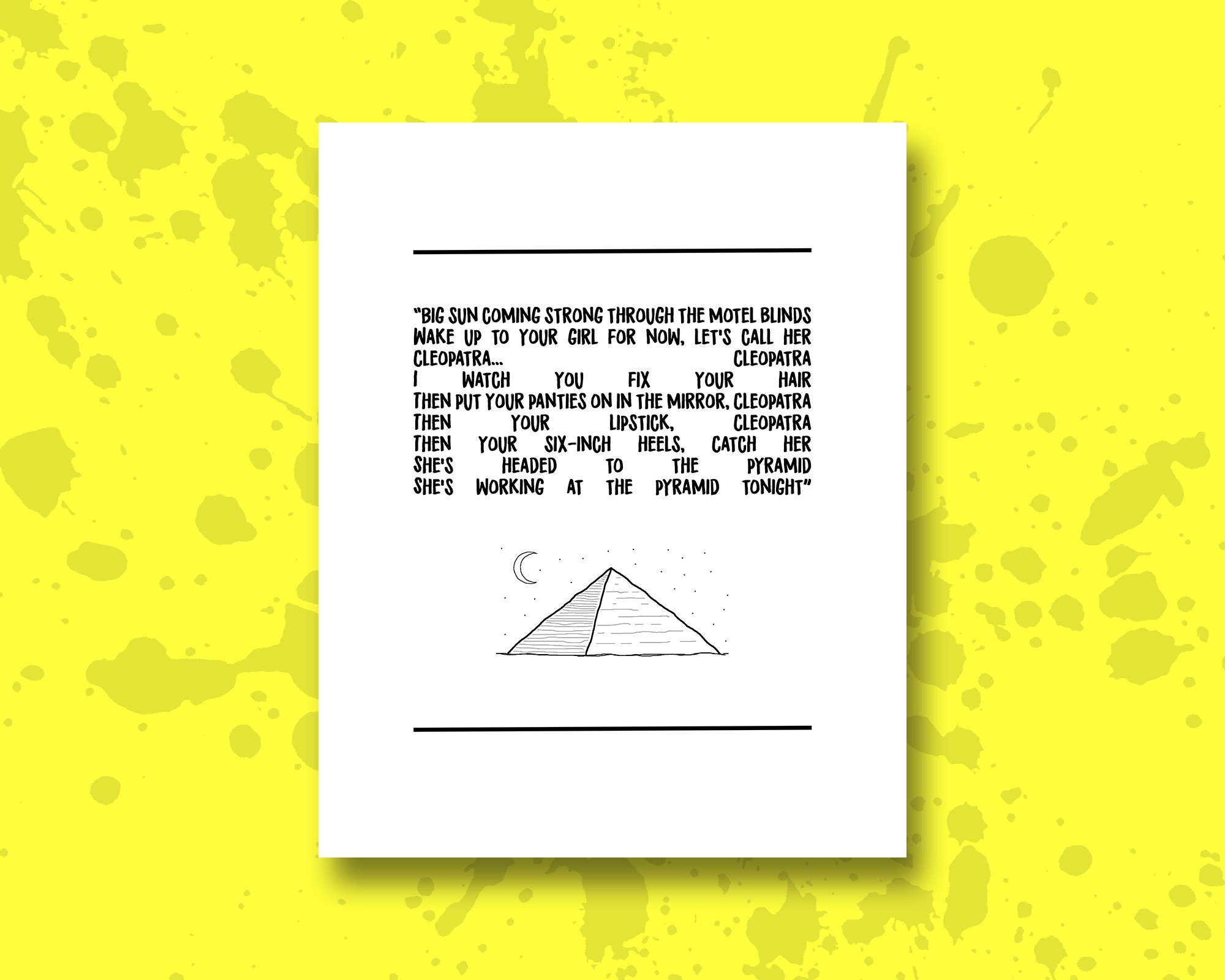

Before any of you comment that I’m simply “overthinking” it, I’ll add that Frank Ocean is a genius. And though it carries a sad disposition, it ultimately feels empowering. Its combination of such lyrical and sonic perfection is what compels me to say that it’s the best song I’ve ever heard. Needless to say, “Pyramids” is a masterpiece. Then comes the outro, where John Mayer erupts into a 2-minute guitar solo. Either way, this verse completes the thematic circle: Once powerful people have been reduced through time to (in this case) sad pimps and sullied prostitutes. But he could also just be saying that he has to pay the price of giving her up to other men to earn money for both of them.

I think it reveals that the pimp eventually has to pay her for sex, signifying that he has sunk to the level of paying his former lover for her love.
#CLEOPATRA PYRAMIDS FRANK OCEAN FREE#
And in the final lines of the verse, Frank unleashes a stunning twist, singing “But your love ain’t free no more.” Granted, there are lots of interpretations to this twist (and other parts of this ambitious song). The smooth synthesizer work is met with a neat arrangement of trumpets as Frank’s verse continues. He describes the modern couple with beautiful little vignettes of their life, whose fate mirrors that of their predecessors. In the next verse, Frank alternates between rapping and singing with impressive flow. And it does so magnificently, as Frank echoes the hook. Frank introduces the new Cleopatra-whose life as a stripper and prostitute is, indeed, symbolic of the historical plight of the African woman-from the perspective of her pimp and lover (who is the narrator in part 2). Then comes part 2, which is significantly better than part 1 despite its many strengths. Over the next 60 seconds, “Pyramids” morphs into a trippy segue. “Our war is over, our queen has met her doom,” he sings in an allusion to the Battle of Alexandria.īut just before the 4-minute mark, “Pyramids” begins to transform. He initially sings of her beauty and her exploits, but then he sings of her downfall from Ptolemy’s death to Cleopatra leaving Egypt to be with her new lover, the Roman general Mark Antony, to her suicide. The first three minutes contain pop and funk elements as Frank focuses on Cleopatra. In doing so the song laments the evolution of the African people, from rulers and icons to being enslaved and degraded. It begins with the story of two Pharaohs of Egypt-Cleopatra and her partner, which is implied to be Ptolemy XIV-only to end up with a modern-day prostitute and stripper named Cleopatra (who works at “The Pyramid” in Las Vegas) and her lover, a pimp.

Bands like Pink Floyd and Radiohead alone have produced countless songs that you might pick over “Pyramids.” But I will make my case nonetheless.įeaturing all sorts of imagery, parallels, plot twists, various literary and historical references, and some of the best production I’ve ever heard, “Pyramids” is split into two parts. Obviously these types of discussions are highly subjective and futile in many ways, and I don’t expect many people to agree with me. What better song to start with than the greatest one I’ve ever heard? Frank Ocean’s sprawling 10-minute track “Pyramids” (on his iconic R&B album, Channel Orange) comes to mind. So you’ll start to see some reviews of mixtapes, EPs, and even songs that seem worthy of consideration. I am very excited to announce that I will be reviewing ALL types of music from now on.


 0 kommentar(er)
0 kommentar(er)
